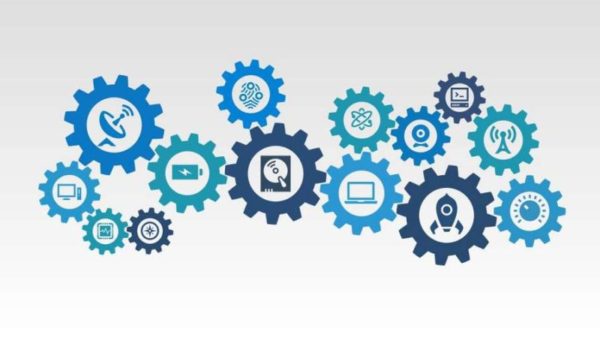10 Characteristics of Effective Communication
Have you ever wondered if you’re good at communicating? If you know how to share a message and receive information or if, on the contrary, that “is not for you”?
Being able to communicate with those around you-whether your partners, subordinates, bosses, friends, or enemies- is much more than a good skill to have: it is a requirement to establish meaningful connections that are, in short, the foundation of any business.
Victoria Hitce Ferreyra has a degree in psychology and works in the IT talent acquisition team of Free Market; she observes resumes and has frequent interviews with communicators, says:
“When we open a vacancy for a communicator in the company, the first thing I thought was that I would like to find someone empathetic and analytical who could put themselves in the shoes of users of the platform and think, based on that, how to communicate, says Hitce Ferreyra.
In this article, you will know more about communication and what makes for a good quality communication between people.
10 Characteristics of Effective Communication
1. Emotion Management
Emotional intelligence, that is, the ability to manage emotions instead of allowing them to dominate you-is a key skill to develop in order to become a good communicator. Imagine someone who is a bundle of nerves or irritated by the slightest provocation: how could one engage in a conversation with that person?
For Daniel Goleman, author of Emotional Intelligence, strong emotions can interfere with attention and all aspects of clear thinking. Instead of trying to eliminate their feelings, for him, people should strive to find an intelligent balance between reason and emotion.
2. Ability to focus
Visualize the following scene; imagine that you are trying to talk to someone about something that you can be excited to tell or not. Someone is listening to you while answering messages on their cell phone, looking at their watch, and thinking about their next meeting.
Would you feel heard if this happened? If you want to be a good communicator, either to talk or to receive information, you need to forget about multitasking and focus all your attention. It’s also an act of respect!
3. Learn to listen
This is closely related to the previous point; too often, people focus on what they will say and make themselves heard but rarely focus on listening. Think of an ordinary meeting, where everyone wants to make their points and even take the word for it. If you’re going to be a good communicator, don’t become that person.
Being a good listener allows you to receive all the information, process it, and work with it. Whether it’s to debate a topic, respond to a problem, or fix a problem, it’s essential to have paid attention to the message you previously received.
It is good to ask clarifying questions during active listening and reformulate questions to ensure we have 100% understood the other person.
This also demonstrates interest and empathy for others because active listening involves paying full attention to what the other person is saying and understanding their thoughts, ideas, and feelings.
To reinforce active listening, you could use phrases like: “then, what you are saying is…” “Ah! You mean…”, “tell me more about…”, “you mean you felt this way…?” “I see, and what happened?”
4. Avoid making judgments
If you want to understand someone, you have to put judgment aside; keep an open mind, and avoid judging people, especially if you don’t have the elements to form an opinion. Only then can you forge deep connections.
5. Provide feedback
Be careful! Judging and providing feedback are two different things. Feedback involves listening to what someone else is telling you, putting yourself in their shoes, providing tools or insights to a problem a person has shared with you, and letting them know in some way that interests you.
You can ask questions to deepen the conversation, repeat some important points touched by your interlocutor, or offer advice if the occasion lends itself.
6. Non-verbal communication
Body language is just as important as verbal. Your posture and gestures can express discomfort or nervousness, or on the contrary, safety, and calm. Be consistent with what you say and what your body says: by listening to someone avoid crossing your arms, and by speaking, keep eye contact with the other person.
7. Assertiveness
Being assertive means expressing what you feel and think sincerely while always respecting others. And to be it, you must value the opinion of others as much as yours and learn to express it respectfully.
Likewise, assertiveness means learning to say “no” when necessary.
8. Empathy
Empathy is putting yourself in the other person’s shoes; being empathetic is one of the most valued social skills because it helps to understand the needs of others, understand their situation and way of acting.
Some of the phrases that we can use to show empathy are “I understand what you say,” “I understand your situation.”
And even if we don’t agree with colleagues, employees, or friends, being empathetic help when sending a more straightforward and more effective message.
Here’s a great article on How to Develop Empathy. I am sure you’ll find it insightful.
9. Mediative and Open-minded
Conflicts and discrepancies are inevitable in any personal and work relationship. Knowing how to act and healthily manage these situations is essential for relationships to work.
It is necessary to know how to face conflicts and confront them; if we avoid them, they will end up becoming entrenched, which will cause resentment and ill-health. For this not to happen, we must be aware that there may be different views on the same fact, and we must listen to them without judging immediately.
It is essential to respect all opinions, and to do so, keep an open and flexible mind will favor more honest and productive conversations. To do so, we must adopt a calm, non-defensive and respectful attitude by communicating our choices so that others do not feel attacked.
10. Persuasion
Communicating also means getting our ideas across to our partners; that is why we must be convincing. We can use different resources for this, and each person has to find their mechanisms. Still, the security, knowledge of the subject, emphasis, and passion will make our communication persuasive.
In his classic book, “How to Make Friends and Influence People,” Dale Carnegie brings several techniques of how to use persuasion to be understood and, above all, met.
The author shows how influence can be a positive thing when it brings people together, making others feel important to become more receptive to their message.
Instead of saying, you’re leaving the whole project on my back! , try: your participation is fundamental to the success of this project.
| Characteristics of Effective Communicator | Description |
| Easier to establish relations | A person with communicative skills will be more likely to generate relationships with people because they can connect more with them and get their message and thoughts across effectively. This creates links more easily. |
| Embraces respect | A person who can convey his ideas in a structured and convincing way generates a better image of himself. This is even more important in working environments where effective communication is critical. |
| Has assertiveness in mind | Makes us able to convey our points of view by transmitting security, regardless of whether other people disagree. |
| Generates trust | A person with good communicative skills also implies that they also know how to listen, generating confidence. |
| Clarity of thought | We must have an unambiguous message and concepts that we want to communicate. |
| Body expression and non-verbal language | Would you please pay attention to the messages you transmit through gestures since they communicate as much or more than verbal language? |
2 Examples of GREAT Communicators
- Michelle Obama
With an engaging way of speaking and a speech considered impeccable, Michelle Obama broke the “supporting” barrier, a role often stereotyped concerning first lady status.
With a memorable speech, she became a real protagonist, not only of feminism but also of the black cause and anti-racism. Subtle and clear, she proved to the world that it is possible to defend a cause without propagating hate speech. With extreme skill and sincerity, in her speeches, she always prioritizes a more humanized look.
- Martin Luther King
Martin Luther King went down in history with his fight. However, he certainly would not have been successful in his endeavor if he had not become an expert communicator.
One of King’s strategies to consolidate his message was repetition, both about the training of his text and using the trick of repeating a phrase or introduction.
This is the case of the famous “I have a dream,” which has become his best-known speech around the world. The repetition, combined with the emphasis, without a doubt, a communicator, serves as inspiration for all of us.
Before we close, should you be interested in learning more about communication skills, check out some of our articles on the topic below.
-
10 Effective Communication Skills to Jump-start Your Career
Regardless of the industry, you are going to work in; possessing effective communication skills to engage with your staff, colleagues, and superiors effectively. Nowadays, you must know how to effectively receive and convey messages in person and also through social media, email and over the phone/voice call. Having effective communication skills will assist you in…
-
Digital Literacy as a Means of Boosting Your Business Effectiveness – 6 Ways to Do it!
Before I start discussing digital literacy, the new means of communication, the benefits of using digital technologies to support your business, let me first tell you a quick story. A Little Backstory Back when I was in 12th grade, we received the visit of the Education Minister in my school (a public one), and he…
-
Communication Skills Guide: Examples of 11 Good and 8 Poor ones
Having effective communication skills is essential to every aspect of life, from going through school/college, to simply sharing ideas, speaking in public, nailing an interview, for better prospects in bidding proposals and whether we like it or not, we sometimes have poor communication skills. Well, it is not wrong to accept it; in fact, it…
-
How to Improve your Communication Skills – 7 Essential Tips
Before we delve into how to improve your communication skills, let us first address the basic definition of communication. Communication in simple terms can simply be defined as the act of transferring information from one place to another or, from one person to another. There are many forms of communication, such as verbal (words of…
Conclusion
The ability to communicate is part of the social skills that allow us to develop effectively and naturally with other people. Therefore, being a good communicator promotes integration and acceptance in social and workgroups and helps to strengthen the person’s self-esteem and confidence.
Reference and Further Reading
11 Communication And Speaking Skills That Will Boost Your Reputation As A Leader. Forbes
AcethePresentation. AmadeBai, Emidio. 10 Critical Communication Skills.
AcethePresentation. AmadeBai, Emidio. 7 Apps for Developing Communication Skills.












